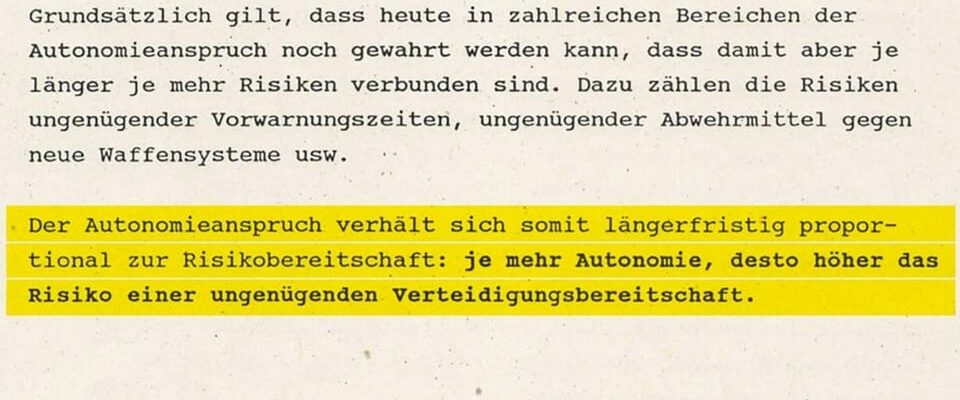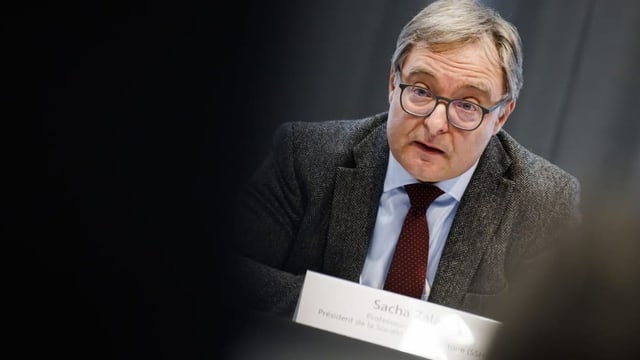contents
In 1992, the military department concluded that neutrality had become a security risk. This is shown by documents from the Federal Archives published by the Dodis research center.
turning point. This term also applies to the phase in the late 1980s and early 1990s. Simply under different signs than today.
In 1989 the Berlin Wall came down and the Iron Curtain fell. The Soviet Union dissolved in 1991 and the threat from the East was gone. Old beliefs in Switzerland were also shaken, such as that the Swiss army could defend the country autonomously.
On June 23, the Deputy Secretary General of what was then the Federal Military Department EMD (now the Department of Defence, Civil Protection and Sport, DDPS) wrote:
The document lay locked away in the Federal Archives for 30 years. Now it becomes publicly available through the database of Dodis (Swiss Diplomatic Documents). It shows: In 1992, the EMD leadership had doubts about the autonomous national defense – and about neutrality. The discussion paper was addressed to the Federal Department of Foreign Affairs (FDFA), which headed a working group on the future of neutrality.
limits of autonomy
In the discussion paper, Kaspar Villiger, who worked for the then Minister of Defense at the time, listed various examples of where autonomy was reaching its limits. In the event of a conflict, the Swiss army is dependent on supplies from abroad.
One is also dependent on foreign countries for the maintenance of armaments and for the procurement of information. The claim to autonomy in air defense is also problematic. The EMD was convinced that protection against “new dangers” such as long-range missiles could only be built up in an international network.
The EMD warned that these weaknesses could mean that Switzerland could become vulnerable to blackmail because it was left without allies. The culprit was found: neutrality.
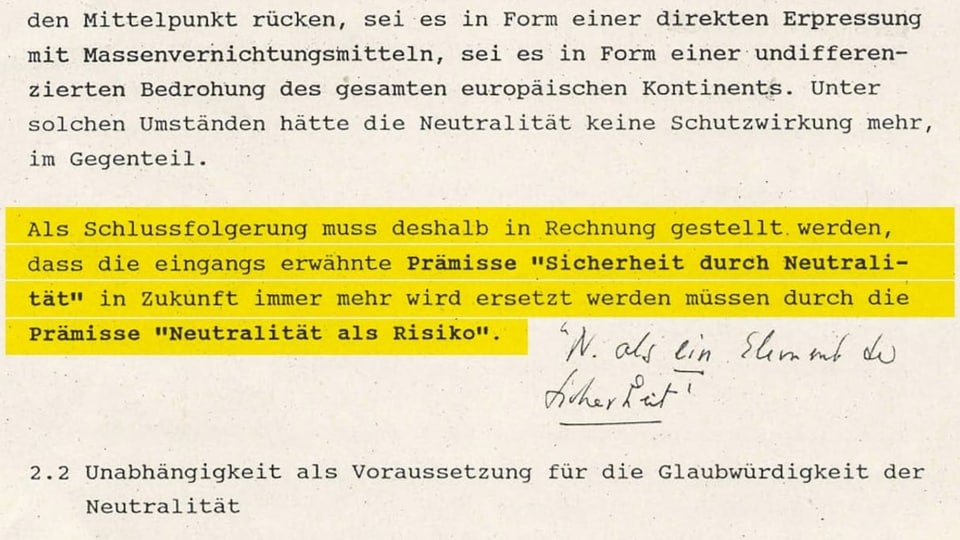
Neutrality as a military risk. The historian and head of the Dodis research center, Sacha Zala, says that neutrality has thus lost the magical effect of a protective shield that had been perceived for decades. “This is a very remarkable, sober and most likely correct assessment of the situation from a military point of view.”
In the early 1990s, the risk map for Switzerland changed for the better in a short space of time. Dodis director Zala says the fall of the Berlin Wall triggered a general spirit of optimism in foreign policy. As early as 1990, a small group of pioneers in the section for international law in the FDFA started to think about the consequences for neutrality.
International sanctions against violators of international law
In the same year there was also a change of direction in Swiss neutrality policy. The Federal Council decided, without hesitation, to adopt the UN Security Council’s economic sanctions against Iraq. A study group set up by the Federal Council in 1991 suggested that Switzerland should reduce its neutrality to its core content.
And this is exactly where the military department raised concerns in 1992. The EMD warned that neutrality reduced to the core would also pose a security risk for Switzerland. Europe is growing together and a majority of states have come to the conclusion that mutual security guarantees offer more security than autonomous defense capabilities.
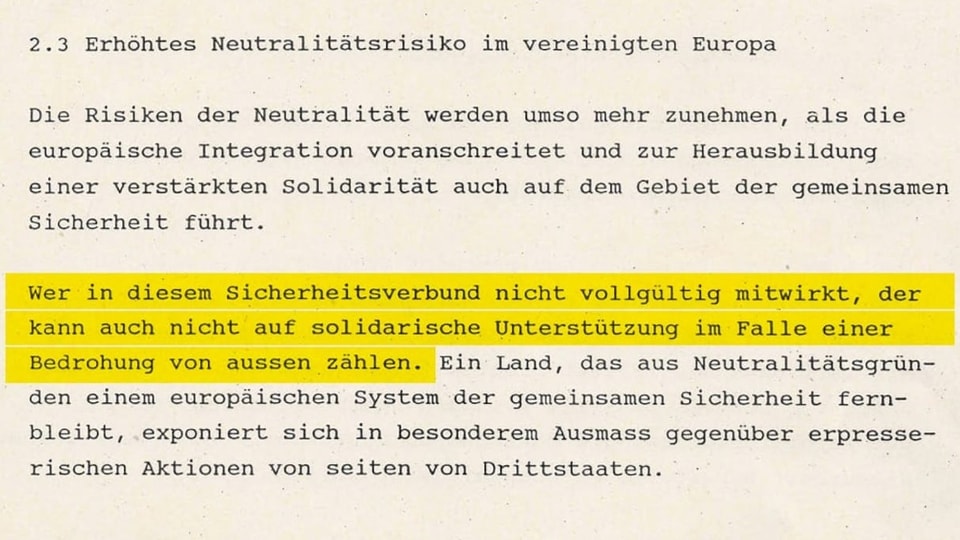
The military department thus dismantled the argument that in the event of war one could still join an alliance like NATO.
How did the leading foreign department react to the analysis from the EMD? It tore the arguments to pieces and cheekily wrote back to the EMD:
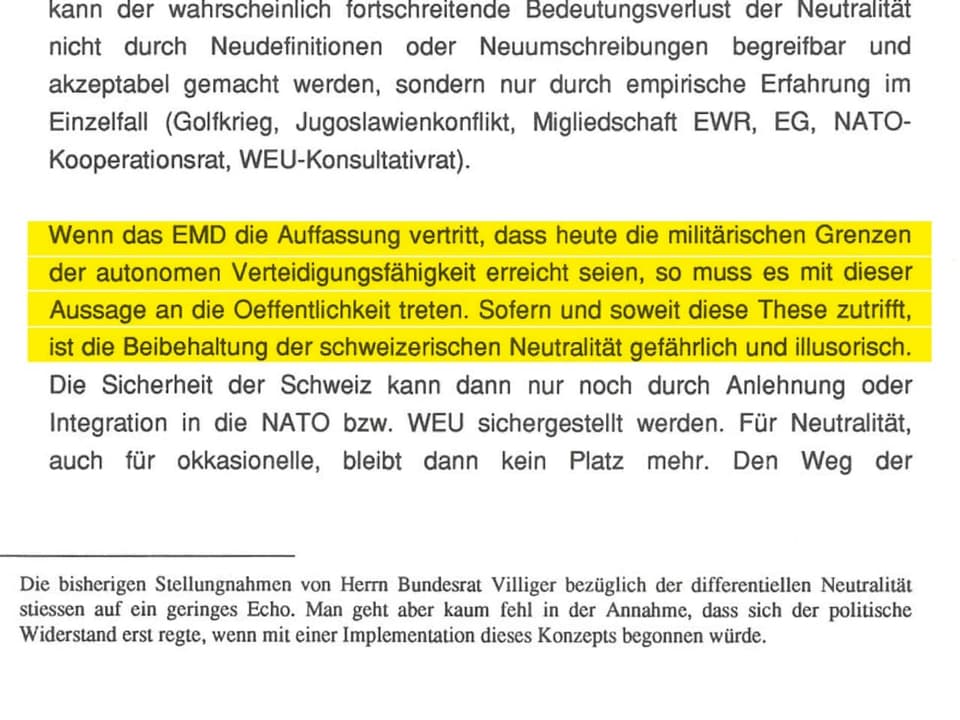
The EMD or later the DDPS never complied with this request. But the 1992 assessment that autonomous national defense is an illusion remains valid to this day.
